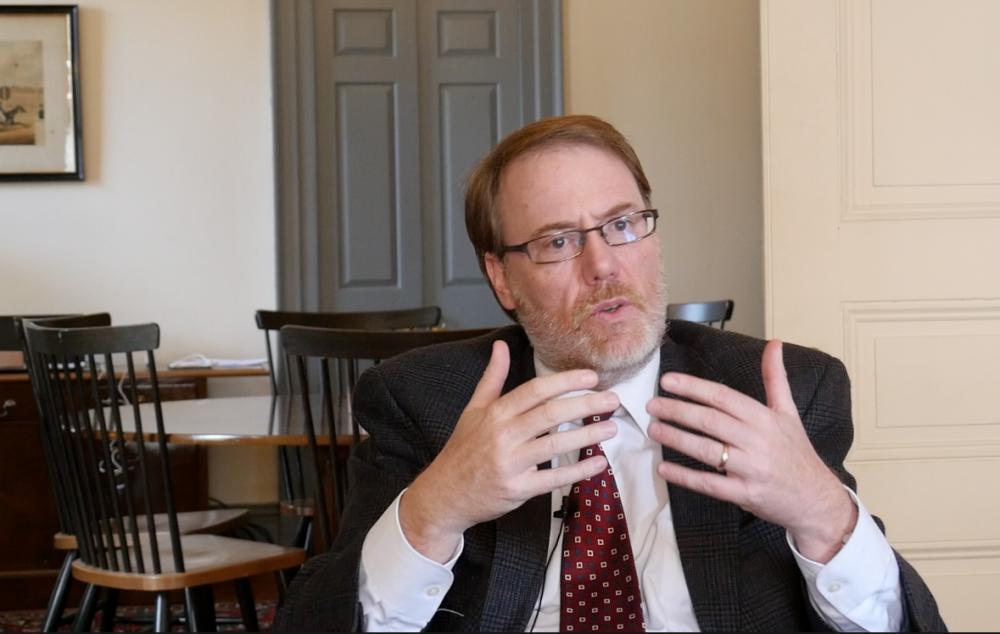For almost the entire length of his academic career, Joseph Prud’homme, Easton resident, Washington College professor, and founder of the school’s Institute for the Study of Religion, Politics, and Culture, has investigated the extraordinary links that connect our country’s political life with its religious and cultural heritage. While he is the first to say that he is not a preacher nor a politician, but “just a professor,” he believes the time is right for his institute to move beyond the college classroom and enter into the much larger orbit of public discourse with outreach programs and lecture series designed to inform the Mid-Shore community of these multidisciplinary links.
In his first Spy interview, Joseph highlights how these three of these components interacts in our current state of affairs by using the example of the abolitionist movement in the early part of the 19th Century, where politics, religion, and American culture were vividly seen as important and co-equal influences on how the United States saw the institution of slavery. In Professor Prud’homme’s mind, that trinity is just as important to consider when talking about abortion rights or the Black Lives Matters movement in 2017.
This video is approximately six minutes in length. For more information about Washington College’s Institute for the Study of Religion, Politics, and Culture please go here.



Ronald Jones says
Professor Prud’homme: This was posted on FB by a former student who is an alum of my school and of your college. I enjoyed your brief discussion and value the points that you made; however, I oftentimes find it difficult to discuss and reason with the people (family included) who are (were) Trump supporters because they often refer to those of us who may disagree
with Trump as libtards, Obummer lovers, etc. and even one Christian pastor who called me deranged because I did not support Trump. What would be your solution in trying to have them listen and vice-versa? By the way, I just joined a discussion group in my area (Ocean City-Salisbury) for an excellent book on race relations in the US entitled America’s Original Sin by Jim Wallis. It seems to lend itself to your discussion. Thank you very much.
Martin Hersey says
Listening to others in a spiritual tradition is also something I am learning to do in the Buddhist tradition. One needs to suppress any rising thoughts or comments of one’s own while listening to someone speaking about anything at all, esp. matters of suffering. We all have views and opinions of our own. We attach a great deal of importance to these views and opinions, to the detriment of our own freedom. By holding on to these views and opinions, we bring aggravation onto ourselves in our dealings with others. It is best to let go of these views and opinions and not take a stand against the views and opinions of others. We are only harming ourselves and others by doing so. Self-enters in and takes away from any meaningful understanding we may wish to gain from speaking with other people.